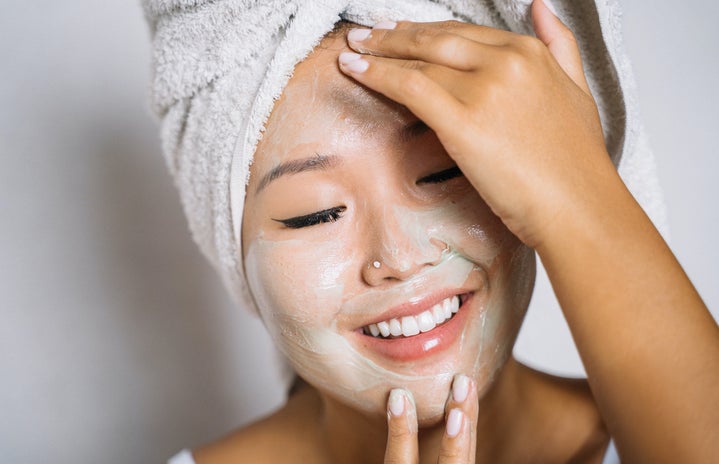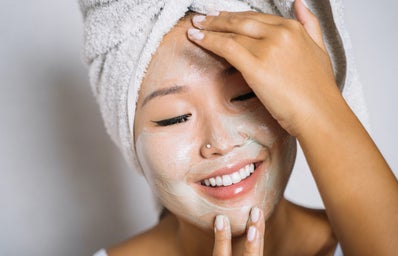The day after my school dance, I woke up with itchy, bumpy red cheeks for an accidental e-girl look that put my blush out of business for the next week. I did not use any new skincare products and the ones that I did use were very simple and largely hypoallergenic. I also had not eaten anything out of the ordinary, but even if I had, the symptoms were only showing up on my face and neck, so what caused this outbreak?
The previous day, I had gotten my hair cut and styled at a salon that I had never been to before. They used a lot of hair products that smelled “natural” and like essential oils, which I already knew could cause contact allergies, but they had never affected me before. At least that’s what I thought until I realized that my symptoms alleviated significantly whenever I tied my hair out of my face.
My contact dermatitis may have been caused by one of those heavily-fragranced hair products; it’s a common type of eczema that causes dry skin, rashes and itching after the skin comes into contact with a particular irritant. Some people may have an explosive and immediate response to strong irritants after a single exposure, but others might only develop their symptoms after they run into mild irritants on multiple occasions. Common irritants include fragrances found in personal care products, bleach/detergents, shampoos, rubbing alcohol and nickel.
So how can you prevent this from happening to you?
- Avoid known irritants/allergens
-
Opting for simpler products free of fragrance, then performing patch tests by using the substance on a small area of skin can go a long way in preventing allergic reactions. Of course, it can be difficult to eliminate all potential allergens, but it’s a good idea to at least minimize the risk in any small way possible.
- Keep your skin clean & use protective equipment whenever possible
-
Rinsing off irritants with gentle, fragrance-free soap and lukewarm water can greatly reduce symptoms from arising. Better yet, avoid touching them in the first place by wearing gloves to do the dishes or clean the house, as dish soaps and other cleaning agents can be quite harsh on the skin.
- Use protective moisturizers and cream
-
The topmost layer of your skin acts as a barrier to keep out irritants, so keep it healthy by moisturizing regularly and keeping the skin hydrated. Etude House’s SoonJung 2x Barrier Intensive Cream is a tried and true minimal cream that can be used daily to supplement the skin barrier. It has panthenol, which is a powerful humectant that draws in water to hydrate the outer layer of the skin, as well as centella asiatica, which has calming properties. One of my favorites to use when my skin is acting up is Eucerin’s Skin Calming Itch Relief Lotion, which uses colloidal oatmeal to reinforce the skin barrier.
While contact dermatitis may sound scary, it’s not something to lose your mind over (barring a few more serious, but less common scenarios that you should speak to your doctor about). Take precautions whenever possible, but if you get it anyway, chances are you’ll wake up with a natural and almost trendy blush look for a little while.


